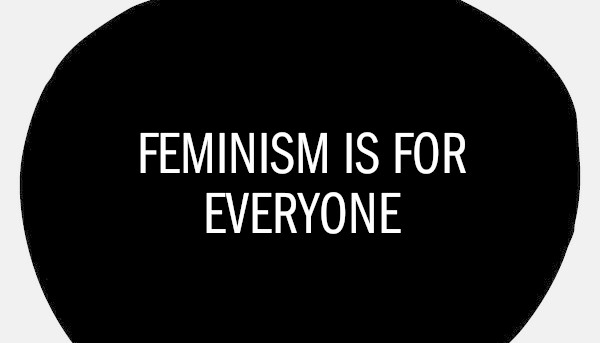Feminism is one of the most debated and misunderstood topics in modern society. While its core purpose is rooted in equality, numerous misconceptions surround the concept, leading to unnecessary skepticism and hostility. This article aims to debunk these myths and present a clear understanding of feminism, its goals, and why it matters to everyone.
What Is Feminism Really About?
Feminism is fundamentally about equality. It advocates for the social, political, and economic rights of all genders, focusing on eradicating systemic inequalities that have historically disadvantaged women. However, it’s not just about women—it’s about building a world where everyone, regardless of gender, has access to equal opportunities and rights.
The heart of feminism lies in dismantling harmful systems of patriarchy, which perpetuate inequality not just for women but for men as well. It is not about elevating one gender over another or diminishing the rights of men. Instead, feminism seeks to create a fair society where people are treated with respect and dignity, regardless of their gender identity.
Why Do People Misunderstand Feminism?
Feminism often gets misinterpreted due to misinformation and cultural biases. Many people assume it’s an attack on traditional values or a movement focused solely on women. This misunderstanding arises from a lack of education, outdated beliefs, and, in some cases, intentional distortion of feminist ideals.
Some misunderstand feminism because they confuse the term “equality” with “sameness.” Feminism does not mean that men and women are the same in every aspect; it recognizes differences but insists that these differences should not lead to discrimination or inequality. Additionally, the historical focus on women’s rights, due to centuries of systemic oppression, often makes people think feminism excludes other genders, which is far from the truth.
Media’s Role in Misleading People
The media plays a significant role in shaping public opinion about feminism. Unfortunately, it often portrays feminists in an extreme or negative light, reinforcing stereotypes and fueling misunderstandings.

Fear of Change Creates Misunderstanding
Change is often met with resistance, and feminism challenges deeply ingrained societal norms. This can make people uncomfortable, leading to fear and misunderstanding. Many individuals fear losing their traditional roles or privileges and see feminism as a threat rather than a call for justice and fairness.
Stereotypes About Feminists
One common stereotype is that feminists are “angry women who hate men.” This harmful image has been perpetuated in movies, TV shows, and even news outlets. In reality, feminists come from all walks of life and are driven by a desire for equality—not hatred. Men, too, can be feminists, and many actively support the movement.
Is Feminism Just for Women?
No, feminism is not just for women. While the movement addresses issues like sexism and gender inequality—problems that have historically affected women the most—it also benefits men and non-binary individuals. Feminism opposes rigid gender roles, which can harm men by pressuring them to conform to unrealistic standards of masculinity. Feminism advocates for a world where everyone can be their authentic self without fear of judgment or discrimination.
Does Feminism Mean Hating Men?
One of the most widespread misconceptions about feminism is that it’s anti-men. This is entirely false. Feminism does not aim to blame men for the problems of the world but rather addresses the systems that uphold inequality. In fact, feminism encourages men to be part of the solution by recognizing how patriarchy harms them, too.
For example, traditional masculinity often pressures men to suppress emotions, prioritize dominance, and avoid activities seen as “feminine.” Feminism seeks to dismantle these harmful norms, creating a society where men can express vulnerability and individuality without fear of judgment. It’s about liberating all genders, not attacking one.
How Men Can Support Feminism
Men play a crucial role in advancing the feminist movement. Here’s how they can contribute:
- Educate Themselves: Understanding the principles of feminism is the first step. Men can read books, watch documentaries, and follow credible feminist organizations to learn about the movement.
- Challenge Sexism: Men can use their privilege to speak up against sexist jokes, harassment, and discriminatory practices in their workplaces or social circles.
- Support Women’s Voices: Amplifying women’s voices, listening to their experiences, and advocating for gender equality are essential ways men can support feminism.
- Redefine Masculinity: Men can challenge toxic masculinity by embracing emotional openness and rejecting harmful gender stereotypes.
By supporting feminism, men help create a world where everyone thrives—regardless of gender.
Feminism Benefits Everyone
Feminism is often portrayed as a women-centric movement, but its benefits extend to society as a whole. Here’s how feminism positively impacts everyone:

- For Women: It creates equal opportunities in education, employment, and leadership roles while addressing issues like domestic violence and reproductive rights.
- For Men: Feminism challenges toxic masculinity, promoting mental health and emotional freedom. Men no longer have to adhere to restrictive gender norms that demand stoicism and dominance.
- For Non-Binary Individuals: Feminism recognizes and supports the rights of people outside the traditional gender binary, advocating for inclusivity and respect.
- For Families: Feminism promotes shared responsibilities, like parenting and household chores, which leads to healthier, happier families.
By striving for equality, feminism paves the way for a more inclusive, compassionate, and just world.
What Are Some Common Misconceptions About Feminism?
Some of the most common myths about feminism include:
- Feminism is anti-men.
- Feminists want women to dominate men.
- Feminism is only about white, middle-class women.
- Feminists reject motherhood and traditional family roles.
- Feminism is no longer needed in today’s world.
Each of these misconceptions stems from misinformation and fails to capture the true essence of feminism, which is about equality and fairness for all.
Why Does Feminism Matter in 2024?
As we step into 2024, feminism remains relevant because gender inequality persists worldwide. From wage gaps to violence against women, the issues feminism seeks to address are far from resolved. Additionally, feminism is crucial in addressing intersectional issues like racism, ableism, and LGBTQ+ discrimination, which intersect with gender inequality.
How Can You Learn More About Feminism?
To understand feminism better, consider exploring the following resources:
- Books like “We Should All Be Feminists” by Chimamanda Ngozi Adichie or “Feminism is for Everybody” by bell hooks.
- Online platforms and blogs dedicated to gender equality.
- Documentaries like “Miss Representation” or “The Mask You Live In.”
Educating yourself about feminism is the first step toward becoming a more informed and empathetic global citizen.
Feminism Means Equality for All
At its core, feminism is about creating a level playing field for everyone, regardless of their gender. It’s not about erasing differences or promoting one group over another. Instead, feminism acknowledges the unique challenges faced by different genders and works to ensure that no one is disadvantaged because of their identity.
The Bottom Line
Feminism is not the enemy—it’s a solution. By challenging systemic inequalities and harmful stereotypes, feminism creates a society where everyone, regardless of gender, can live with dignity, freedom, and respect. Clearing up misconceptions about feminism is essential to fostering a more inclusive world. The next time you hear someone misrepresent feminism, remember that it’s not about division—it’s about equality. Let’s work together to create a world where everyone can thrive.










Leave a Reply